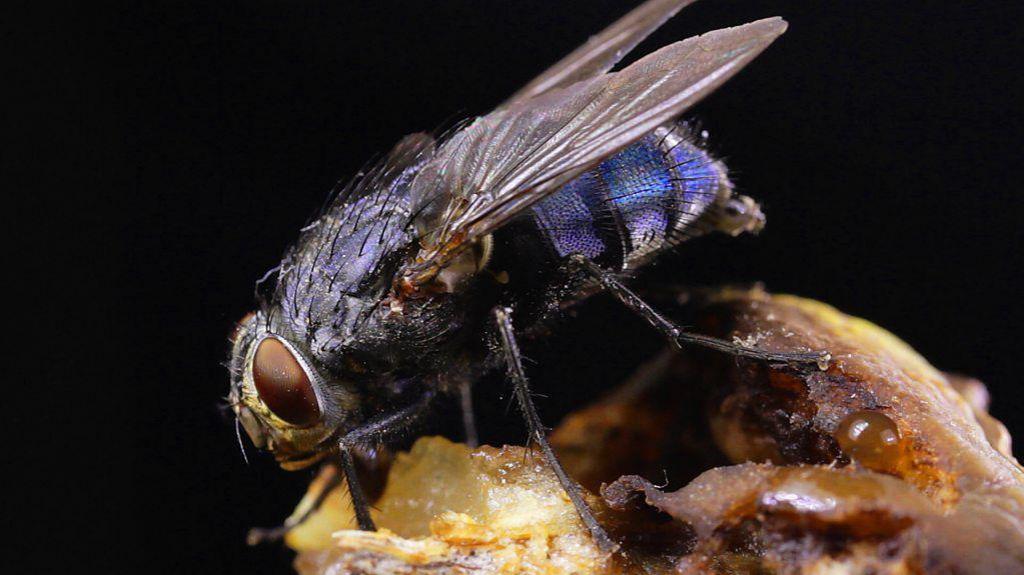Habitat improvement helps rare bumblebees
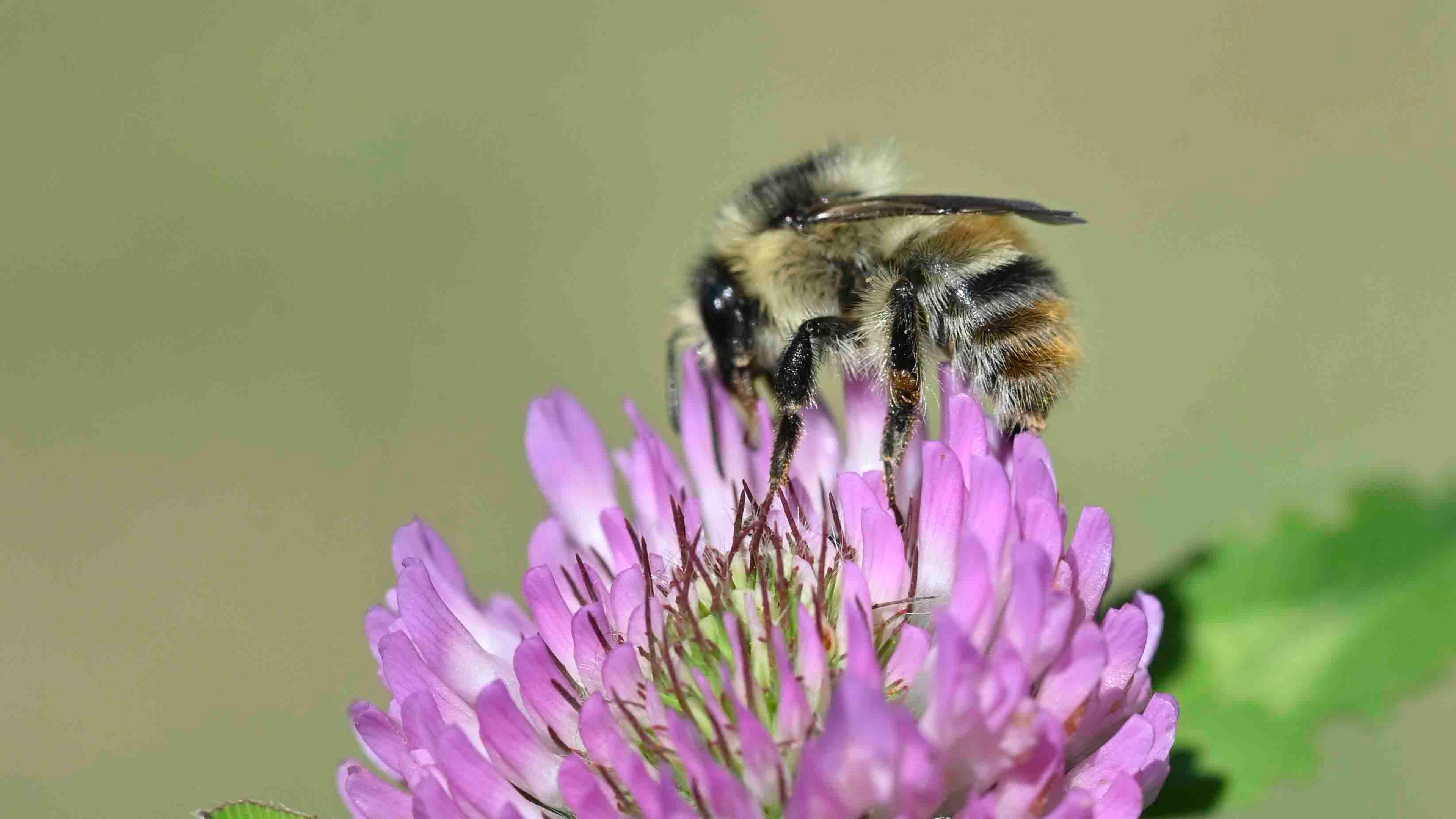
A rare shrill carder bumblebee
- Published
Conservationists in Kent say there are signs that rare bumblebees are making a comeback, thanks to work improving their habitat.
For two years running, the Bumblebee Conservation Trust has recorded sightings of one of Britain's rarest bees, the shrill carder, in an area south east of the county where it had not been seen for over a decade.
Dr Nikki Gammans from the trust said: "By creating more of the habitat that they like, the flower rich habitat, we can hopefully see some more."
She added that she thought the trust's habitat advice had been "key" to helping this species as well as other rare ones.
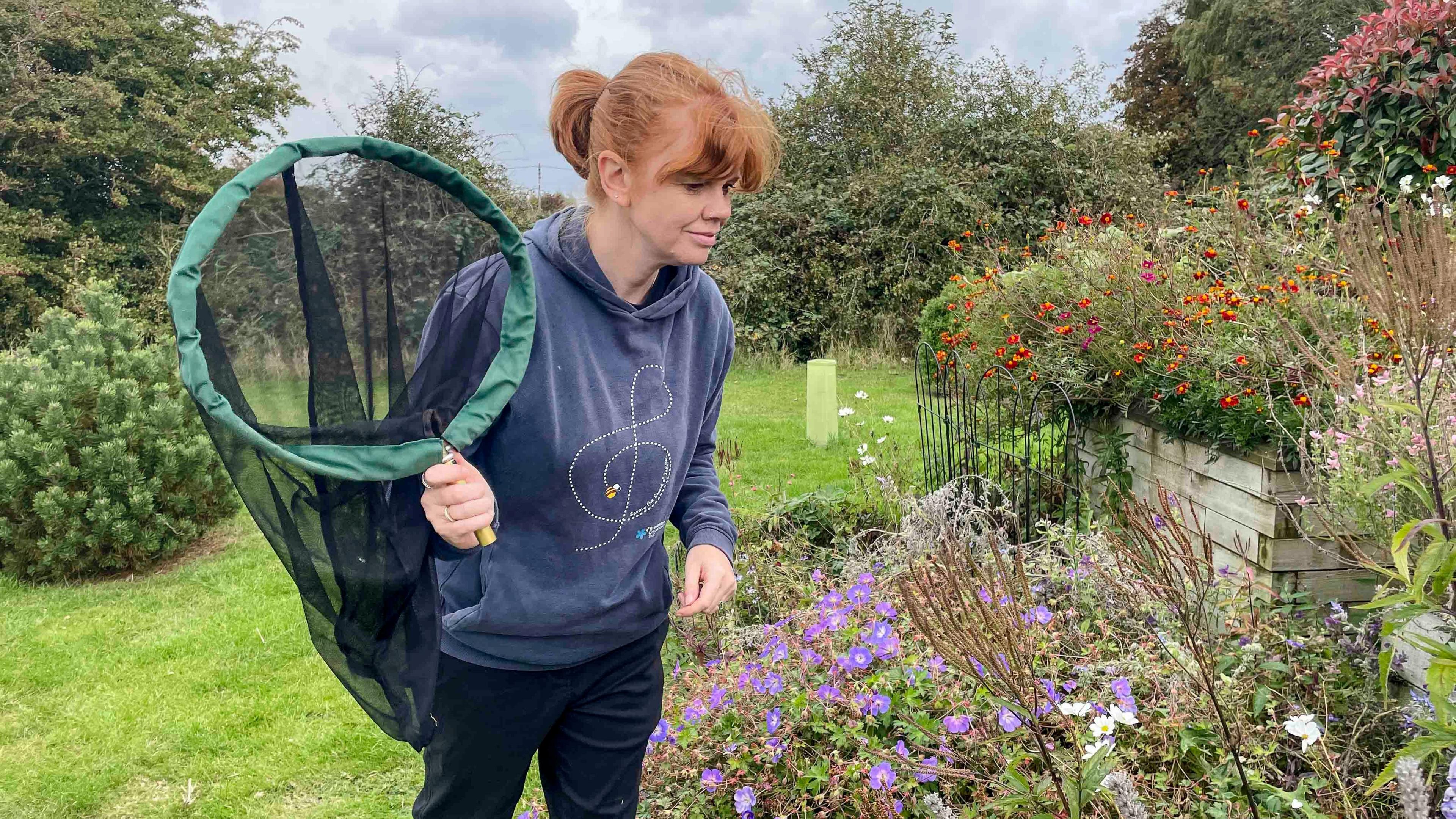
Dr Nikki Gammans surveying for bumblebees
The trust gives advice to landowners and local authorities on how to improve conditions for bumblebees, which rely on nectar and pollen to survive and so need flowers from early spring through to late autumn.
Jaqui Bamford, who lives on Romney Marsh, has been following the advice and has been rewarded with shrill carder bees in her garden.
She has turned a five acre field into a wildflower meadow with ponds and a garden for pollinators.
She said: "It was pretty much a barren area but now it's gorgeous because there are lots and lots of different perennials. It's just been a complete transformation."
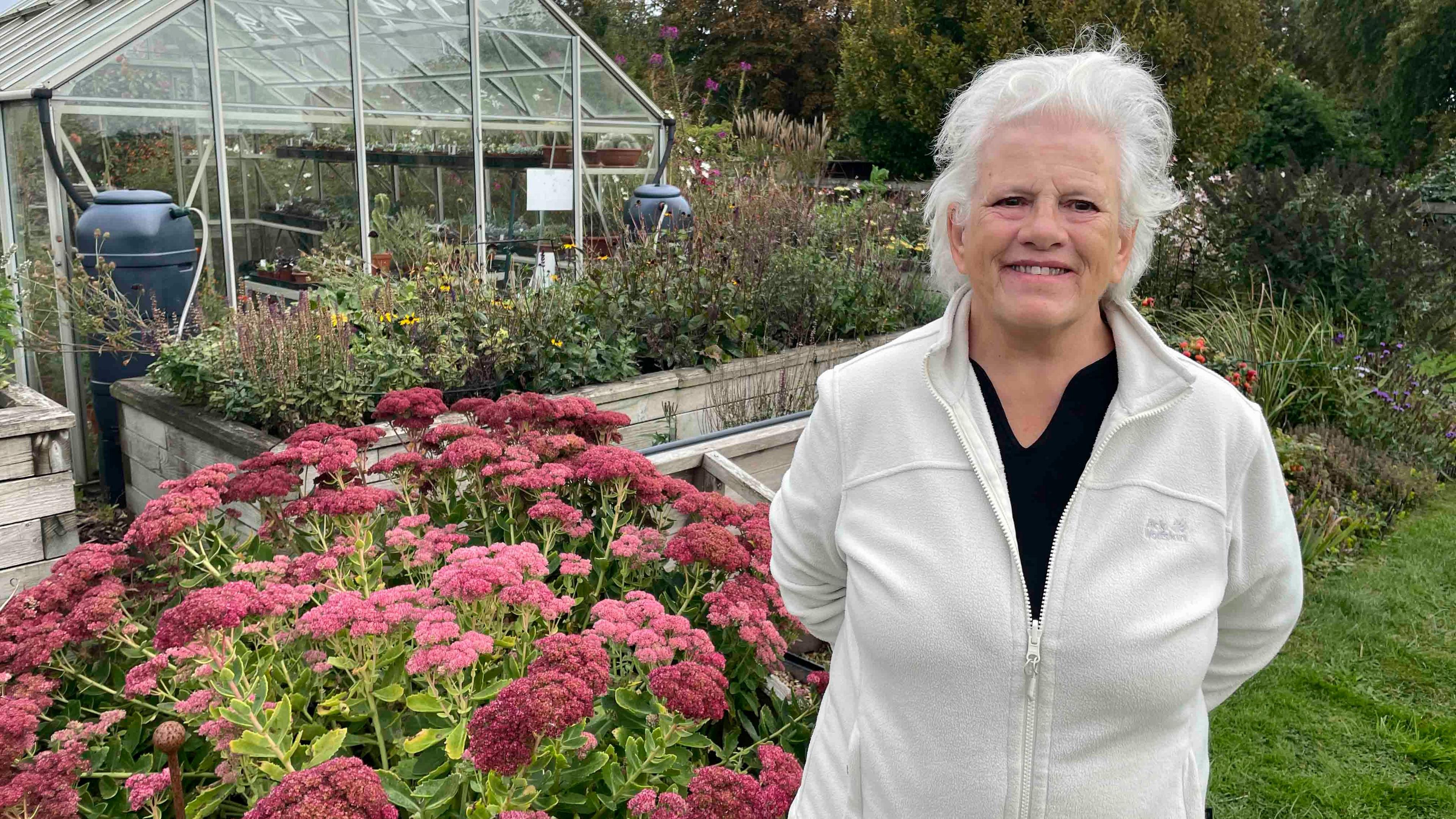
Jaqui Bamford in her garden
Dr Gammans added: "We really do need to do something to help our bumblebees because many of them are in decline and some are really facing extinction.
"We have to act now to help them and the best way to do that is to get involved, plant more flowers for them and help us go out and record and see what else is out there."
It comes after Britain's leading conservation charities jointly issued a declaration calling for widespread restoration of flower-rich habitats, reductions in pesticide and pollutant use, as well as stronger legal protections for key insect species and habitats.
Despite favourable conditions this year for insects, both Butterfly Conservation and the Bumblebee Conservation Trust say numbers have only returned to average following last year's record lows.
Gill Perkins, Bumblebee Conservation Trust's chief executive officer, said: "Our precious insect populations are in trouble, and with them, so are we."
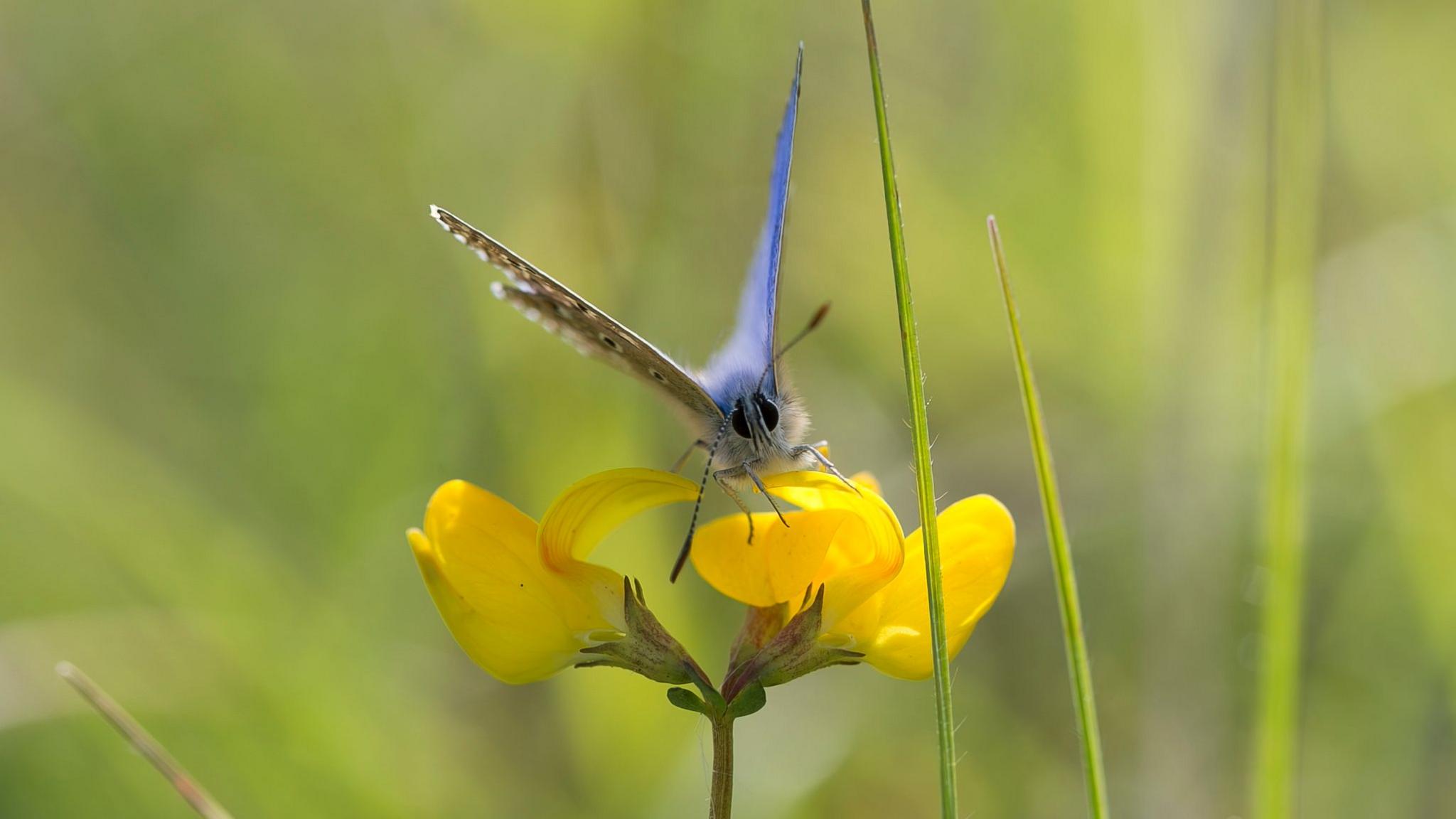
Despite excellent conditions, butterflies had an "average" year
Findings from the national bumblebee monitoring scheme revealed that 2024 was the worst year for bumblebees since records began.
Butterfly Conservation's Big Butterfly Count results from this year revealed butterflies were only seen in average numbers, despite the near perfect weather conditions for the insects.
In addition, results from last year's Bugs Matter survey run by Buglife and Kent Wildlife Trust, suggest the number of flying insects has fallen by 63% since 2021.
Related topics
- Published20 September 2024
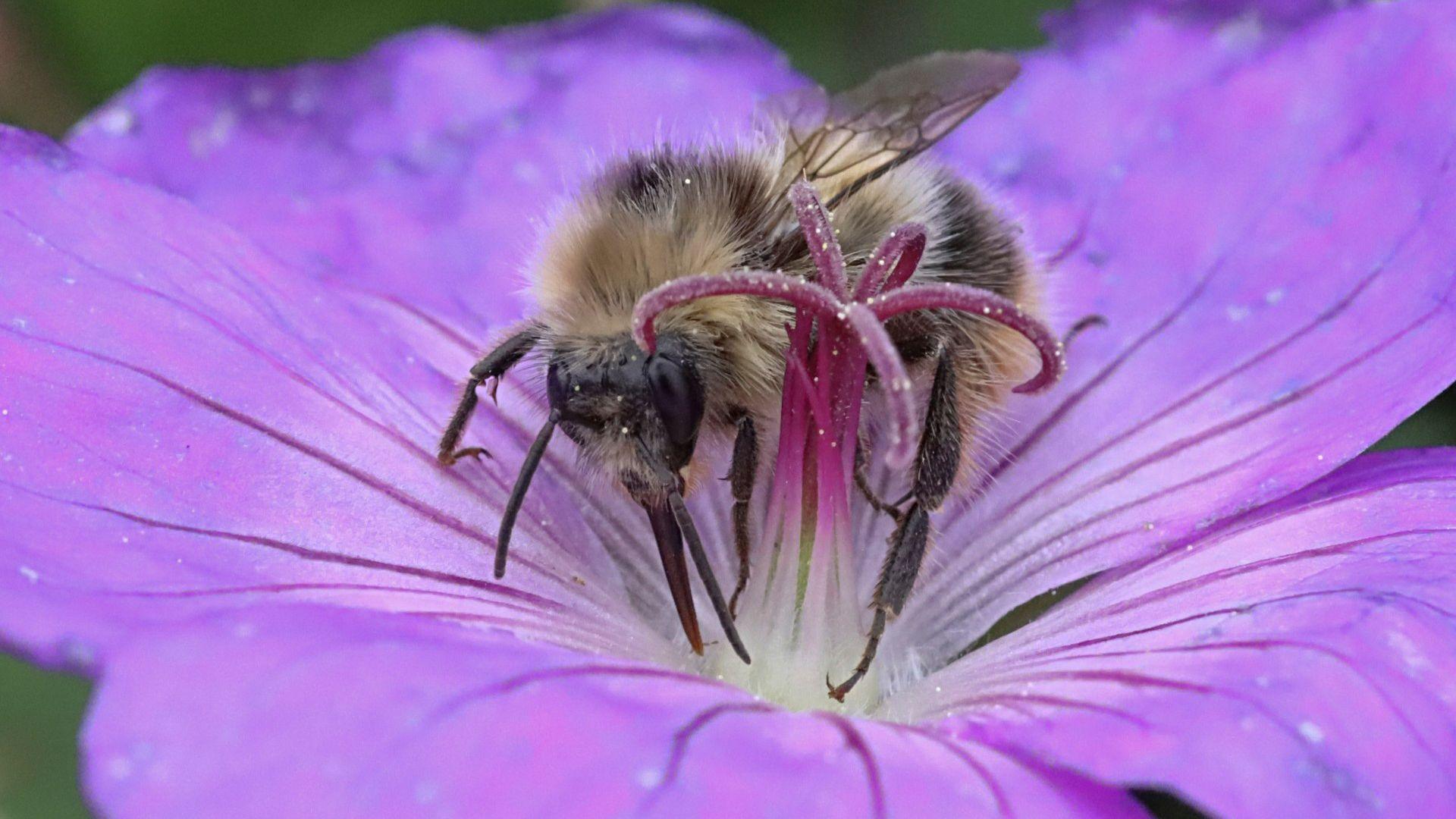
- Published3 May
